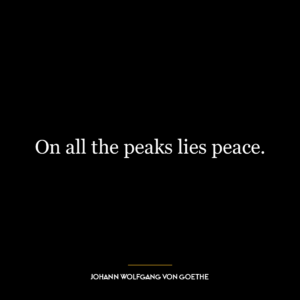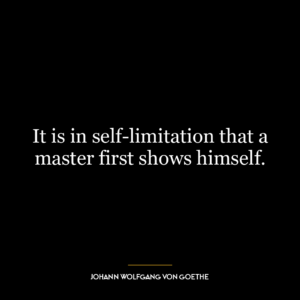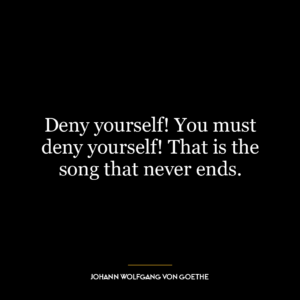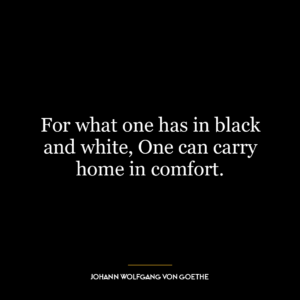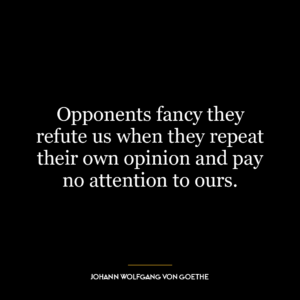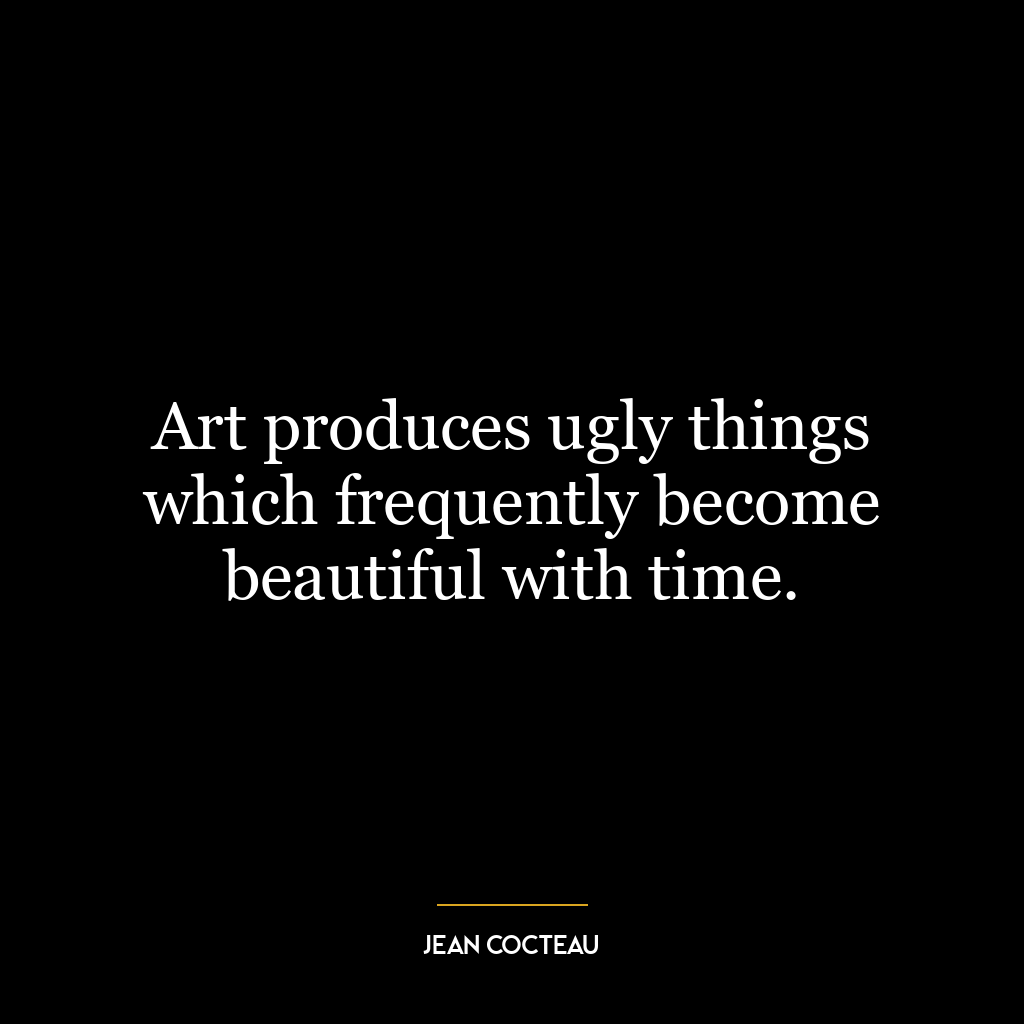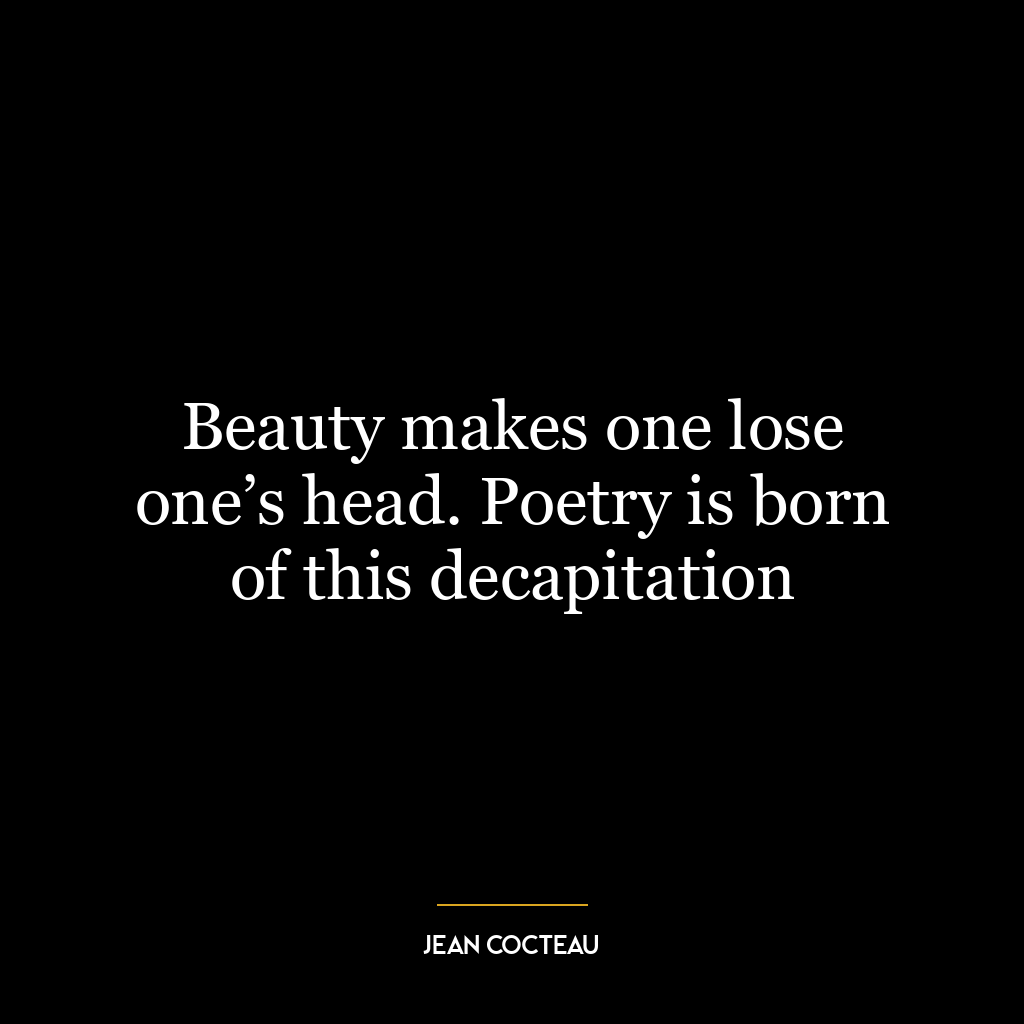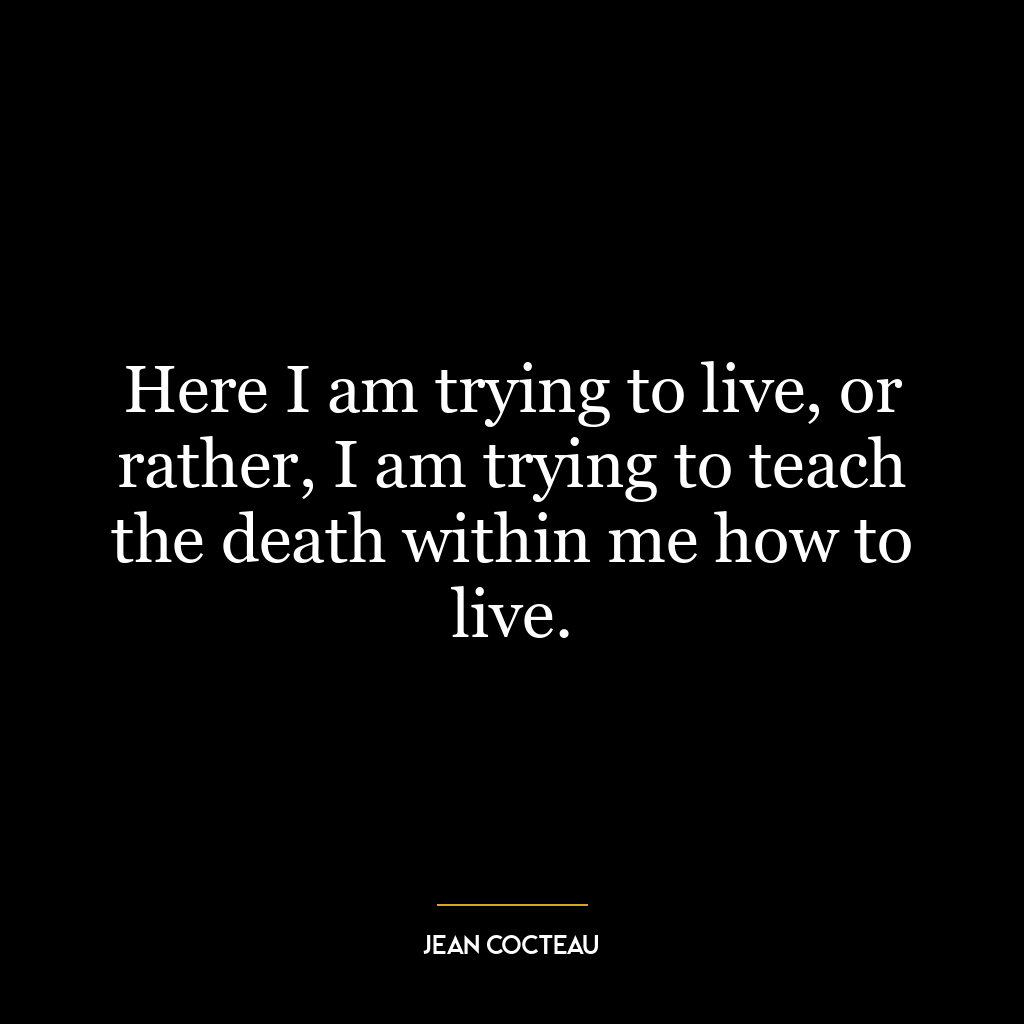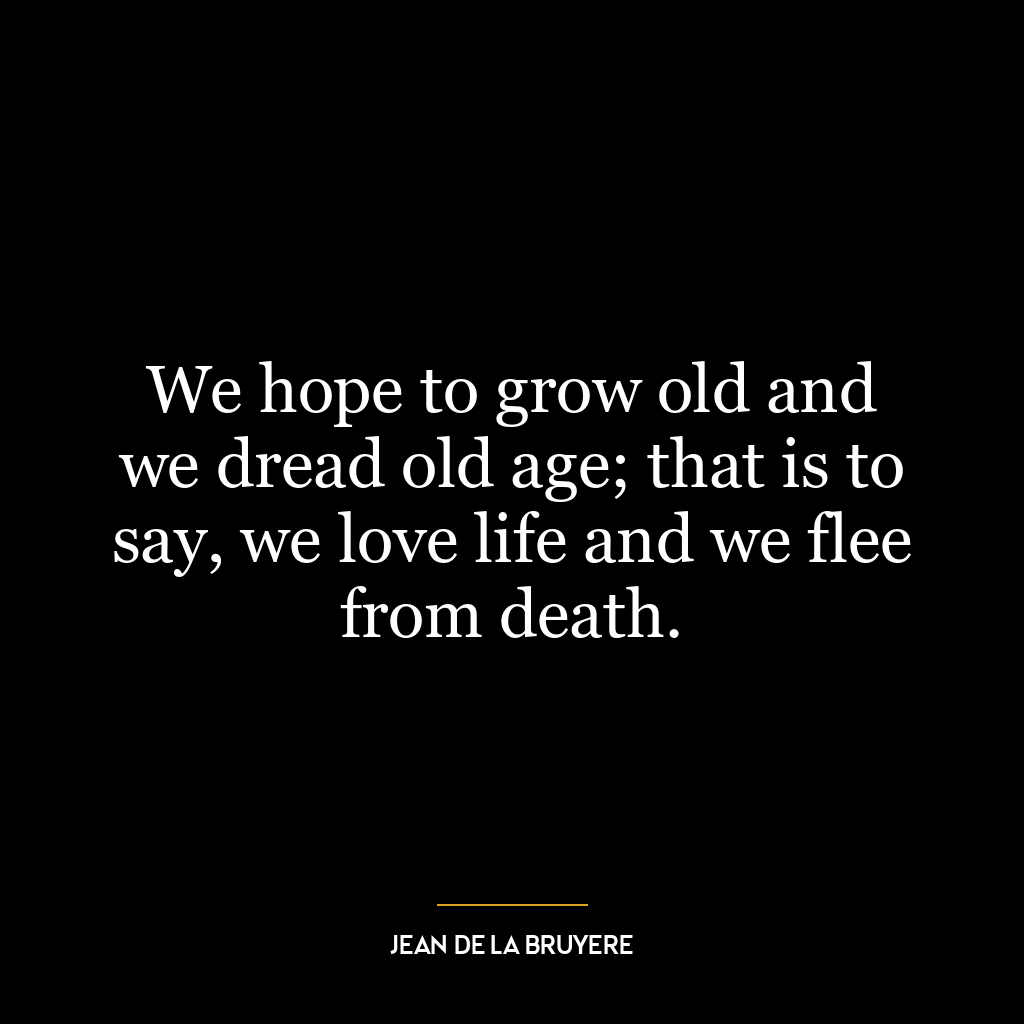This quote by Goethe suggests that the night, or periods of darkness and uncertainty, make up a significant and beautiful part of life. This could be symbolic of the struggles, challenges, and periods of introspection we face. The “fairest half indeed” suggests that these periods are not only necessary but also valuable. They’re fair in the sense that they offer us the opportunity to grow, learn, and understand ourselves and the world around us better.
In the context of personal development, this quote might suggest that we should not shy away from our struggles, but rather, embrace them as integral parts of our journey. The night, or our challenges, is “dear” because it’s through these experiences that we often find our strengths, discover our passions, and learn valuable lessons.
In today’s world, this quote could be seen as a reminder to appreciate the struggles and challenges that come with life. In a society that often prioritizes success and happiness, it’s easy to view struggles as something negative. However, this quote reminds us that these “nights” are just as crucial and beautiful as the “days”. They offer balance and depth to our lives and allow us to fully appreciate the joys and successes when they come.
This idea can be applied to various aspects of modern life, from personal growth to professional development. In the face of failure or difficulty, instead of feeling discouraged, one can choose to see it as a chance for learning and improvement. By embracing the “night” or the challenging times, one can develop resilience, perseverance, and a deeper understanding of oneself, thereby enriching the “fairest half” of life.




